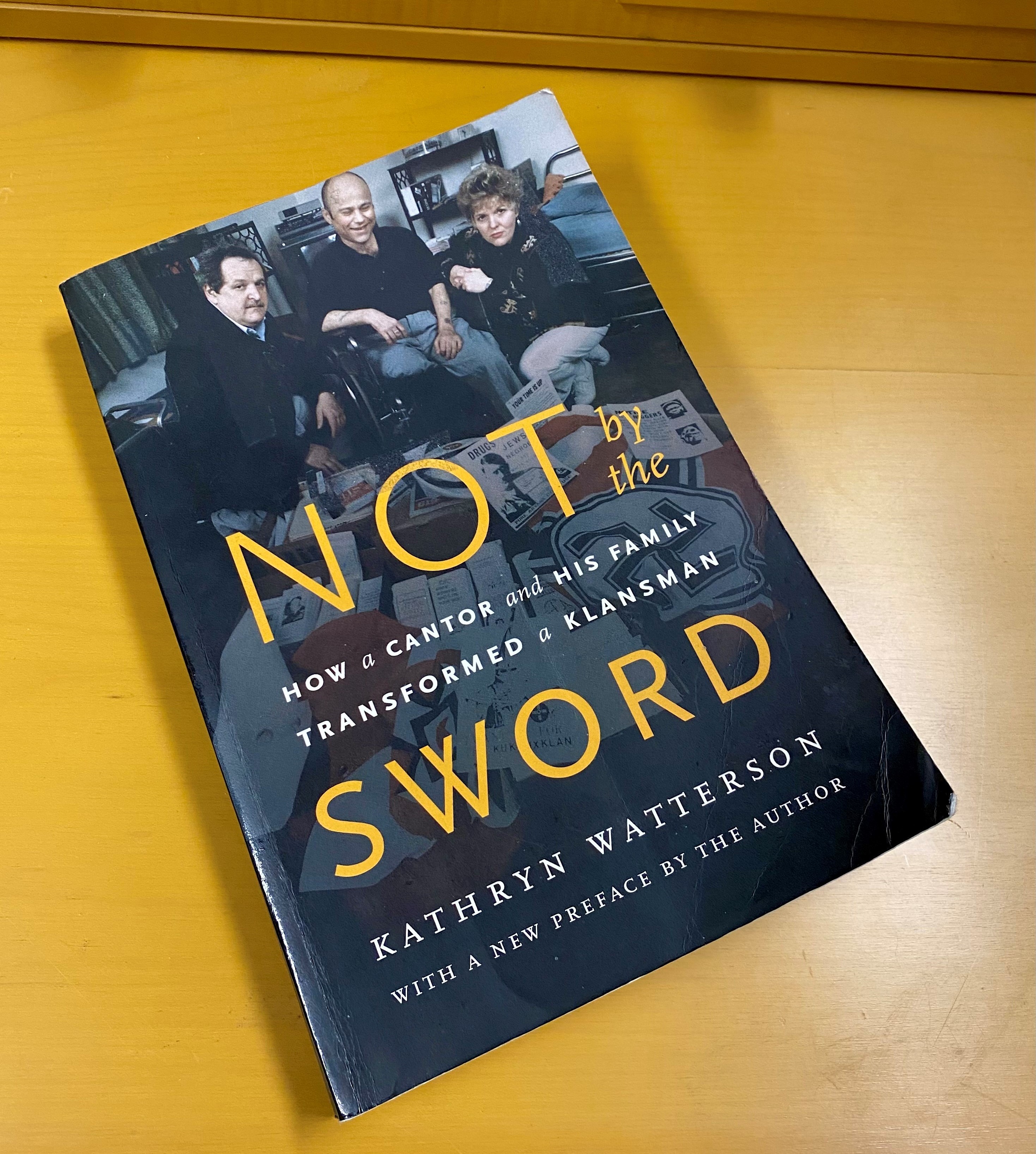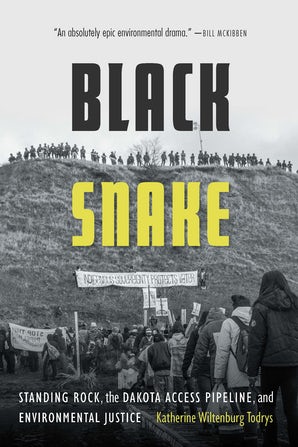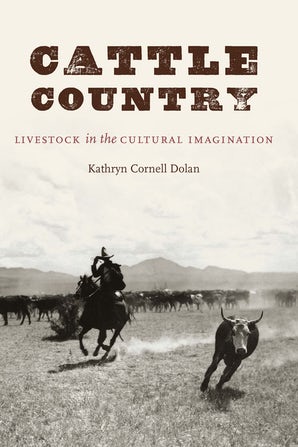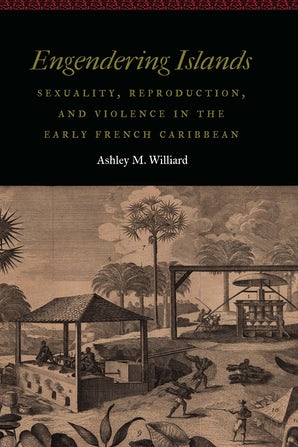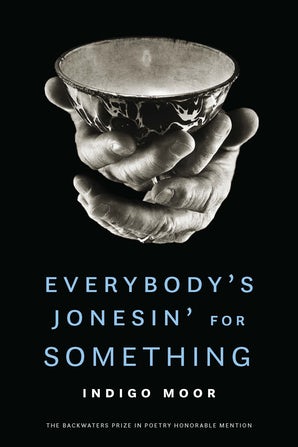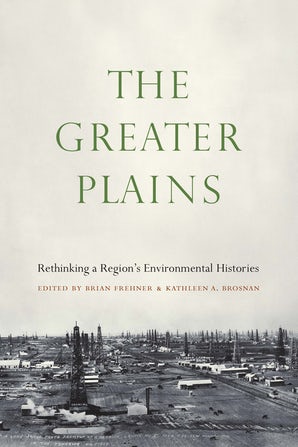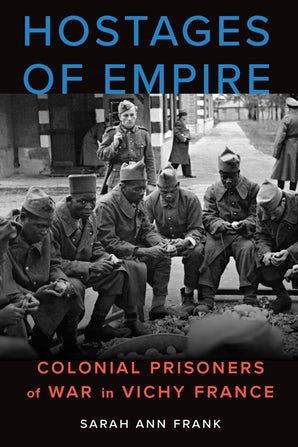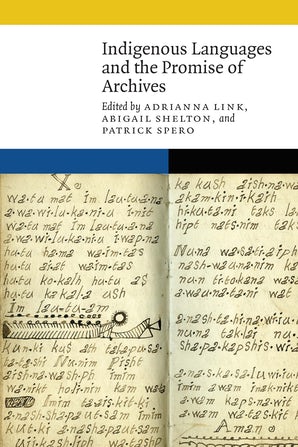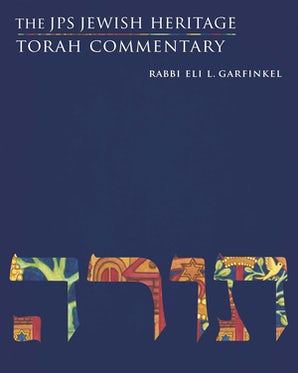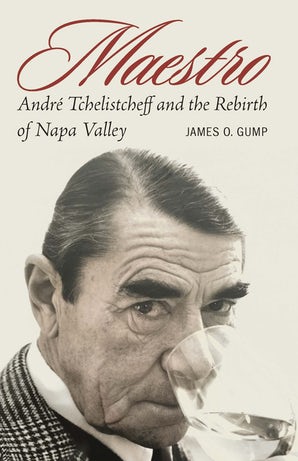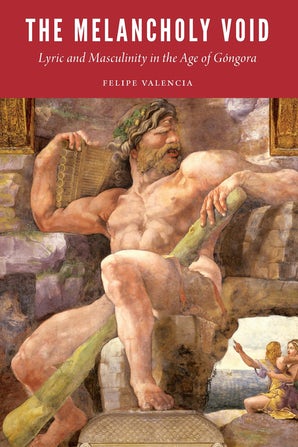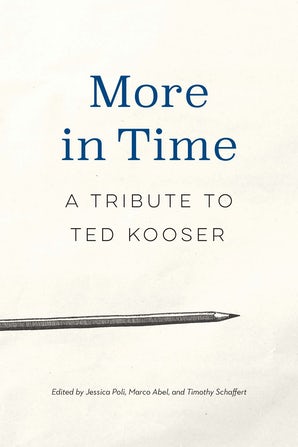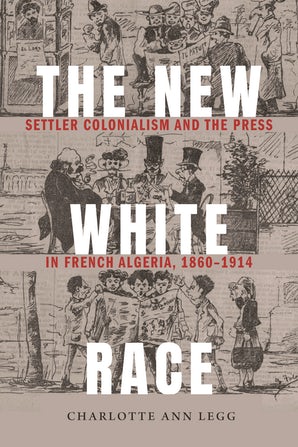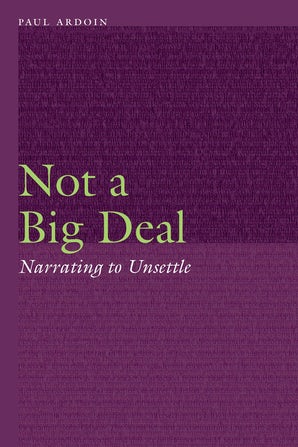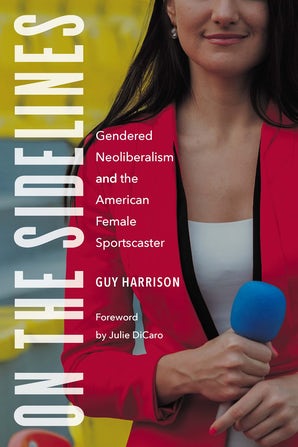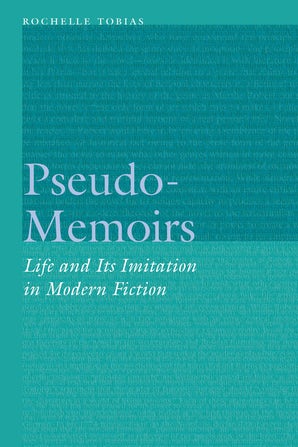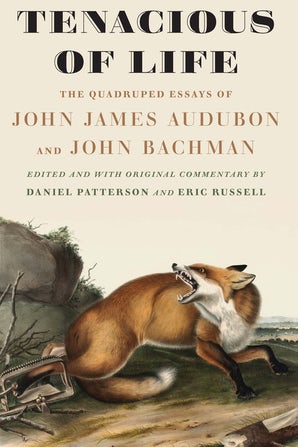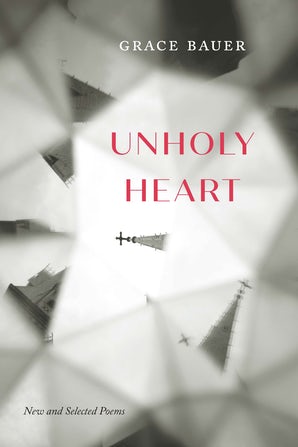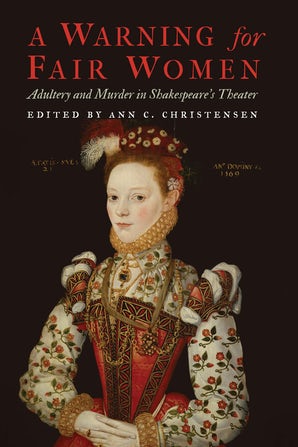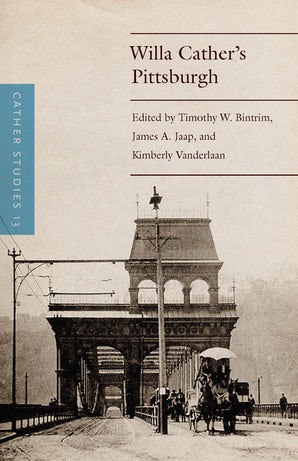Search the Blog
Categories
- Books & Reading
- Broadband Buzz
- Census
- Education & Training
- General
- Grants
- Information Resources
- Library Management
- Nebraska Center for the Book
- Nebraska Memories
- Now hiring @ your library
- Preservation
- Pretty Sweet Tech
- Programming
- Public Library Boards of Trustees
- Public Relations
- Talking Book & Braille Service (TBBS)
- Technology
- Uncategorized
- What's Up Doc / Govdocs
- Youth Services
Archives
Subscribe
Search Results for: knight owl
Friday Reads: Knight Owl by Christopher Denise
Don’t all of us have at least one heartfelt wish? So does a little owl.
Set in medieval times, a young owl’s fondest dream is to become a knight. To his family’s great surprise, he is accepted to Knight School. (A number of knights had been disappearing lately.)
He was smart and dedicated – he just had a little trouble with wielding a sword, or using even the smallest shield available. He also did have some trouble staying awake during the day
After two weeks, they all graduate with honors. The illustration of his graduating class is hilarious. Owl only comes up to the knee of the huge knight standing behind him.
He was assigned the perfect job – Knight Night Watch. It was not a problem for him to stay awake all night. All was well until one night when he heard a strange sound. It turned out to be a dragon who thought the owl looked tasty. He was scared, but knights are brave and clever. He was sure he could find a way out of this predicament.
An entertaining look at someone realizing their dream, facing a challenge, and hoping to succeed. Humorous, with wonderful illustrations, this is a delightful picture book for reading aloud.
Denise, Christopher. Knight Owl. Christy Ottaviano Books, 2022.
ALA Announces the 2023 Youth Media Awards!
The Newbery Award winner is Freewater by Amina Luqman-Dawson and three titles were named Newbery Honor Books. This year Freewater also won the Coretta Scott King Author Book Award. The Coretta Scott King Illustrator Book Award is Standing in the Need of Prayer: A Modern Retelling of the Classic Spiritual illustrated by Frank Morrison and written by Carole Boston Weatherford.
The Caldecott Award winner is Hot Dog, illustrated and written by Doug Salati. Four titles were named Caldecott Honor Books. I have not seen Hot Dog yet, but one of the Caldecott Honor Books is Knight Owl illustrated and written by Christopher Denise. This book was the subject of one of my “Friday Reads” posts. Take a look here if you would like to know more about it.
To learn all the titles that were recognized on January 30th during the ALA Youth Media Awards webcast, just visit this news release.
I hope you find a title on this awards list that you just have to read!
Posted in Books & Reading, Youth Services
Tagged authority control, Cataloger, cataloging, cataloging certificate, education
Leave a comment
Book Briefs: New University of Nebraska Press Books at the Nebraska Publications Clearinghouse
The Nebraska Publications Clearinghouse receives documents every month from all Nebraska state agencies, including the University of Nebraska Press (UNP). Each month we will be showcasing the UNP books that the Clearinghouse receives. UNP books, as well as all Nebraska state documents, are available for checkout by libraries and librarians for their patrons.
Here are the University of Nebraska Press books received in May and June 2021:
Abstract Design in American Quilts at 50 : 1971-2021
Edited by Marin F. Hanson ; Contributing authors: Jonathan Holstein, Carolyn Ducey, Sandra Sider, Jonathan Gregory, Nao Nomura, and Marin F. Hanson
Fifty years after its debut, the exhibition Abstract Design in American Quilts is remembered as a pivotal moment in the intersecting histories of art, craft, and design. Installed at New York’s Whitney Museum of American Art in 1971, the exhibition presented traditional American pieced quilts on walls more commonly used to display modern art such as abstract expressionist paintings. The exhibition, curated by Jonathan Holstein and Gail van der Hoof from their own collection, unexpectedly struck a chord with museumgoers and art critics alike, breaking attendance records and subsequently traveling to museums across the United States, Europe, and Japan.
With Abstract Design in American Quilts at 50, an exhibition series that includes an installation of the original quilt group, the International Quilt Museum at the University of Nebraska–Lincoln reexamines the half-century impact of this watershed exhibition. In five essays, leading quilt scholars assess the areas upon which the exhibition, in its various iterations, had its greatest impact, most notably the growth of quiltmaking across the United States and in art circles. The essays also discuss broader cultural phenomena that produced an environment in which quilts and other forms of material culture could be viewed and valued in new ways.
Black Snake : Standing Rock, the Dakota Access Pipeline, and Environmental Justice
By Katherine Wiltenburg Todrys
The controversial Dakota Access Pipeline (DAPL) made headlines around the world in 2016. Supporters called the pipeline key to safely transporting American oil from the Bakken oil fields of the northern plains to markets nationwide, essential to both national security and prosperity. Native activists named it the “black snake,” referring to an ancient prophecy about a terrible snake that would one day devour the earth. Activists rallied near the Standing Rock Reservation in North Dakota for months in opposition to DAPL, winning an unprecedented but temporary victory before the federal government ultimately permitted the pipeline. Oil began flowing on June 1, 2017.
The water protector camps drew global support and united more than three hundred tribes in perhaps the largest Native alliance in U.S. history. While it faced violent opposition, the peaceful movement against DAPL has become one of the most crucial human rights movements of our time.
Black Snake is the story of four leaders—LaDonna Allard, Jasilyn Charger, Lisa DeVille, and Kandi White—and their fight against the pipeline. It is the story of Native nations combating environmental injustice and longtime discrimination and rebuilding their communities. It is the story of a new generation of environmental activists, galvanized at Standing Rock, becoming the protectors of America’s natural resources.
California & Hawai’i Bound : U.S. Settler Colonialism and the Pacific West, 1848-1959
By Henry Knight Lozano ; Series: Studies in Pacific Worlds
Beginning in the era of Manifest Destiny, U.S. settlers, writers, politicians, and boosters worked to bind California and Hawai‘i together in the American imagination, emphasizing white settlement and capitalist enterprise. In California and Hawai‘i Bound Henry Knight Lozano explores how these settlers and boosters promoted and imagined California and Hawai‘i as connected places and sites for U.S. settler colonialism, and how this relationship reveals the fraught constructions of an Americanized Pacific West from the 1840s to the 1950s.
The growing ties of promotion and development between the two places also fostered the promotion of “perils” over this transpacific relationship, from Native Hawaiians who opposed U.S. settler colonialism to many West Coast Americans who articulated social and racial dangers from closer bonds with Hawai‘i, illustrating how U.S. promotional expansionism in the Pacific existed alongside defensive peril in the complicated visions of Americanization that linked California and Hawai‘i.
California and Hawai‘i Bound demonstrates how the settler colonial discourses of Americanization that connected California and Hawai‘i evolved and refracted alongside socioeconomic developments and native resistance, during a time when U.S. territorial expansion, transoceanic settlement and tourism, and capitalist investment reconstructed both the American West and the eastern Pacific.
Cattle Country : Livestock in the Cultural Imagination
By Kathryn Cornell Dolan ; Series: At Table
As beef and cattle production progressed in nineteenth-century America, the cow emerged as the nation’s representative food animal and earned a culturally prominent role in the literature of the day. In Cattle Country Kathryn Cornell Dolan examines the role cattle played in narratives throughout the century to show how the struggles within U.S. food culture mapped onto society’s broader struggles with colonization, environmentalism, U.S. identity, ethnicity, and industrialization.
Dolan examines diverse texts from Native American, African American, Mexican American, and white authors that showcase the zeitgeist of anxiety surrounding U.S. identity as cattle gradually became an industrialized food source, altering the country’s culture while exacting a high cost to humans, animals, and the land. From Henry David Thoreau’s descriptions of indigenous cuisines as a challenge to the rising monoculture, to Washington Irving’s travel narratives that foreshadow cattle replacing American bison in the West, to María Amparo Ruiz de Burton’s use of cattle to connect race and imperialism in her work, authors’ preoccupations with cattle underscored their concern for resource depletion, habitat destruction, and the wasteful overproduction of a single breed of livestock.
Cattle Country offers a window into the ways authors worked to negotiate the consequences of the development of this food culture and, by excavating the history of U.S. settler colonialism through the figure of cattle, sheds new ecocritical light on nineteenth-century literature.
Engendering Islands : Sexuality, Reproduction, and Violence in the Early French Caribbean
By Ashley M. Williard ; Series: Women and Gender in the Early Modern World
In seventeenth-century Antilles the violence of dispossession and enslavement was mapped onto men’s and women’s bodies, bolstered by resignified tropes of gender, repurposed concepts of disability, and emerging racial discourses. As colonials and ecclesiastics developed local practices and institutions—particularly family formation and military force—they consolidated old notions into new categories that affected all social groups.
In Engendering Islands Ashley M. Williard argues that early Caribbean reconstructions of masculinity and femininity sustained occupation, slavery, and nascent ideas of race. In the face of historical silences, Williard’s close readings of archival and narrative texts reveals the words, images, and perspectives that reflected and produced new ideas of human difference. Juridical, religious, and medical discourses expose the interdependence of multiple conditions—male and female, enslaved and free, Black and white, Indigenous and displaced, normative and disabled—in the islands claimed for the French Crown.
In recent years scholars have interrogated key aspects of Atlantic slavery, but none have systematically approached the archive of gender, particularly as it intersects with race and disability, in the seventeenth-century French Caribbean. The constructions of masculinity and femininity embedded in this early colonial context help elucidate attendant notions of otherness and the systems of oppression they sustained. Williard shows the ways gender contributed to and complicated emerging notions of racial difference that justified slavery and colonial domination, thus setting the stage for centuries of French imperialism.
Everybody’s Jonesin’ For Something
By Indigo Moor ; Series: The Backwaters Prize in Poetry Honorable Mention
Turning an unflinching spotlight on the American Dream, Indigo Moor plunges headfirst into national—and personal—laments and desires. From Emmett Till to the fall of the Twin Towers and through the wildfires of Paradise, California, Moor weaves a thread through the hopes, sacrifices, and Sisyphean yearnings that make this country the beautiful trap that it is. Everybody’s Jonesin’ for Something takes an imagistic leap through the darker side of our search for life, liberty, and the pursuit of happiness, perusing what we lose, what we leave behind, and what strange beauty we uncover.
French St. Louis : Landscape, Contexts, and Legacy
Edited by Jay Gitlin, Robert Michael Morrissey, and Peter J. Kastor ; Series: France Overseas: Studies in Empire and Decolonization
A gateway to the West and an outpost for eastern capital and culture, St. Louis straddled not only geographical and political divides but also cultural, racial, and sectional ones. At the same time, it connected a vast region as a gathering place of peoples, cultures, and goods. The essays in this collection contextualize St. Louis, exploring French-Native relations, the agency of empire in the Illinois Country, the role of women in “mapping” the French colonial world, fashion and identity, and commodities and exchange in St. Louis as part of a broader politics of consumption in colonial America. The collection also provides a comparative perspective on America’s two great Creole cities, St. Louis and New Orleans. Lastly, it looks at the Frenchness of St. Louis in the nineteenth century and the present.
French St. Louis recasts the history of St. Louis and reimagines regional development in the early American republic, shedding light on its francophone history.
The Greater Plains : Rethinking a Region’s Environmental Histories
Edited by Brian Frehner & Kathleen A Brosnan
The Greater Plains tells a new story of a region, stretching from the state of Texas to the province of Alberta, where the environments are as varied as the myriad ways people have inhabited them. These innovative essays document a complicated history of human interactions with a sometimes plentiful and sometimes foreboding landscape, from the Native Americans who first shaped the prairies with fire to twentieth-century oil regimes whose pipelines linked the region to the world.
The Greater Plains moves beyond the narrative of ecological desperation that too often defines the region in scholarly works and in popular imagination. Using the lenses of grasses, animals, water, and energy, the contributors reveal tales of human adaptation through technologies ranging from the travois to bookkeeping systems and hybrid wheat. Transnational in its focus and interdisciplinary in its scholarship, The Greater Plains brings together leading historians, geographers, anthropologists, and archaeologists to chronicle a past rich with paradoxical successes and failures, conflicts and cooperation, but also continual adaptation to the challenging and ever-shifting environmental conditions of the North American heartland.
Hostages of Empire : Colonial Prisoners of War in Vichy France
By Sarah Ann Frank ; Series: France Overseas: Studies in Empire and Decolonization
Hostages of Empire combines a social history of colonial prisoner-of-war experiences with a broader analysis of their role in Vichy’s political tensions with the country’s German occupiers. The colonial prisoners of war came from across the French Empire, they fought in the Battle for France in 1940, and they were captured by the German Army. Unlike their French counterparts, who were taken to Germany, the colonial POWs were interned in camps called Frontstalags throughout occupied France. This decision to keep colonial POWs in France defined not only their experience of captivity but also how the French and German authorities reacted to them.
Hostages of Empire examines how the entanglement of French national pride after the 1940 defeat and the need for increased imperial control shaped the experiences of 85,000 soldiers in German captivity. Sarah Ann Frank analyzes the nature of Vichy’s imperial commitments and collaboration with its German occupiers and argues that the Vichy regime actively improved conditions of captivity for colonial prisoners in an attempt to secure their present and future loyalty. This French “magnanimity” toward the colonial prisoners was part of a broader framework of racial difference and hierarchy. As such, the relatively dignified treatment of colonial prisoners must be viewed as a paradox in light of Vichy and Free French racism in the colonies and the Vichy regime’s complicity in the Holocaust. Hostages of Empire seeks to reconcile two previously rather distinct histories: that of metropolitan France and that of the French colonies during World War II.
Indian Soldiers in World War I : Race and Representation in an Imperial War
By Andrew T. Jarboe ; Series: Studies in War, Society, and the Military
More than one million Indian soldiers were deployed during World War I, serving in the Indian Army as part of Britain’s imperial war effort. These men fought in France and Belgium, Egypt and East Africa, and Gallipoli, Palestine, and Mesopotamia.
In Indian Soldiers in World War I Andrew T. Jarboe follows these Indian soldiers—or sepoys—across the battlefields, examining the contested representations British and Indian audiences drew from the soldiers’ wartime experiences and the impacts these representations had on the British Empire’s racial politics. Presenting overlooked or forgotten connections, Jarboe argues that Indian soldiers’ presence on battlefields across three continents contributed decisively to the British Empire’s final victory in the war. While the war and Indian soldiers’ involvement led to a hardening of the British Empire’s prewar racist ideologies and governing policies, the battlefield contributions of Indian soldiers fueled Indian national aspirations and calls for racial equality. When Indian soldiers participated in the brutal suppression of anti-government demonstrations in India at war’s end, they set the stage for the eventual end of British rule in South Asia.
Indigenous Languages and the Promise of Archives
Edited by Adrianna Link, Abigail Shelton, and Patrick Spero ; Series: New Visions in Native American and Indigenous Studies
Indigenous Languages and the Promise of Archives captures the energy and optimism that many feel about the future of community-based scholarship, which involves the collaboration of archives, scholars, and Native American communities. The American Philosophical Society is exploring new applications of materials in its library to partner on collaborative projects that assist the cultural and linguistic revitalization movements within Native communities. A paradigm shift is driving researchers to reckon with questionable practices used by scholars and libraries in the past to pursue documents relating to Native Americans, practices that are often embedded in the content of the collections themselves.
The Center for Native American and Indigenous Research at the American Philosophical Society brought together this volume of historical and contemporary case studies highlighting the importance of archival materials for the revitalization of Indigenous languages. Essays written by archivists, historians, anthropologists, knowledge-keepers, and museum professionals, cover topics critical to language revitalization work; they tackle long-standing debates about ownership, access, and control of Indigenous materials stored in repositories; and they suggest strategies for how to decolonize collections in the service of community-based priorities. Together these essays reveal the power of collaboration for breathing new life into historical documents.
The JPS Jewish Heritage Torah Commentary
By Rabbi Eli L. Garfinkel ; Series: JPS Study Bible
The JPS Jewish Heritage Torah Commentary shows Jews of all ages and backgrounds that the Jewish people’s most significant book is not dusty and irrelevant but an eternally sacred text wholly pertinent to our modern lives. Designed to keep the attention of all readers, each lively essay is both brief enough to be read in minutes and deep and substantive enough to deliver abundant food for thought.
Its cornerstone is its unique four-part meditation on the Jewish heritage. After briefly summarizing a Torah portion, the commentary orbits that portion through four central pillars of Jewish life—the Torah (Torat Yisrael), the land of Israel (Eretz Yisrael), the Jewish people (Am Yisrael), and Jewish thought (Mahshevet Yisrael)—illuminating how the four intersect and enrich one another. Furthering the Jewish thought motif, every essay ends with two questions for thought well suited for discussion settings. Each commentary can be used as the launchpad for a lesson, a sermon, a d’var Torah, or a discussion.
Readers from beginners to experts will come away with new understandings of our Jewish heritage—and be inspired to draw closer to its four dimensions.
Maestro : André Tchelistcheff and the Rebirth of Napa Valley
By James O. Gump ; Series: At Table
Wine insiders called André Tchelistcheff the “winemaker’s winemaker,” the “wine doctor,” and simply “maestro.” After Prohibition brought Napa Valley and its wine industry to the brink of catastrophe, Tchelistcheff (1901–94) proved essential in its revitalization.
Tchelistcheff’s unique background—a sickly child, a Russian émigré forced from his homeland during the Bolshevik Revolution, a White Army lieutenant who fought in the Crimea, a physical laborer in a Bulgarian coal mine, a Czechoslovakian-trained agronomist, and a French-schooled viticulturist and enologist—prepared him for a remarkable winemaking career. He spent thirty-five years in Napa Valley’s Beaulieu Vineyard and nearly two “post-retirement” decades doing freelance consulting work for more than thirty wineries.
His early struggles forged his principal character traits, which he passed on to an entire generation of winemakers. His students, including some of the most accomplished winemakers of the post-Prohibition period, marveled over their mentor’s sense of authority, profound insight, humble presence, and abundant wisdom.
This inspiring account of Tchelistcheff’s life includes interviews with friends, family, and mentees, which reveal how one man used his passion and knowledge to help save a community on the edge of disaster. In Maestro James O. Gump preserves the memory of a fascinating individual and one of the most influential winemakers of the modern era.
The Melancholy Void : Lyric and Masculinity in the Age of Góngora
By Felipe Valencia ; Series: New Hispanisms
At the turn of the seventeenth century, Spanish lyric underwent a notable development. Several Spanish poets reinvented lyric as a melancholy and masculinist discourse that sang of and perpetrated symbolic violence against the female beloved. This shift emerged in response to the rising prestige and commercial success of the epic and was enabled by the rich discourse on the link between melancholy and creativity in men.
In The Melancholy Void Felipe Valencia examines this reconstruction of the lyric in key texts of Spanish poetry from 1580 to 1620. Through a study of canonical and influential texts, such as the major poems by Luis de Góngora and the epic of Alonso de Ercilla, but also lesser-known texts, such as the lyrics by Miguel de Cervantes, The Melancholy Void addresses four understudied problems in the scholarship of early modern Spanish poetry: the use of gender violence in love poetry as a way to construct the masculinity of the poetic speaker; the exploration in Spanish poetry of the link between melancholy and male creativity; the impact of epic on Spanish lyric; and the Spanish contribution to the fledgling theory of the lyric.
The Melancholy Void brings poetry and lyric theory to the conversation in full force and develops a distinct argument about the integral role of gender violence in a prominent strand of early modern Spanish lyric that ran from Garcilaso to Góngora and beyond.
More in Time : A Tribute to Ted Kooser
Edited by Jessica Poli, Marco Abel, and Timothy Schaffert
More in Time is a celebration and tribute to Ted Kooser, two-time U.S. Poet Laureate, winner of the Pulitzer Prize for Poetry, and Presidential Professor of the University of Nebraska. Through personal reflections, essays, and creative works both inspired by and dedicated to Kooser, this collection shines a light on the many ways the midwestern poet has affected others as a teacher, mentor, colleague, and friend, as well as a fellow writer and observer-of-the-world. The creative responses included in this volume are reflective of the impact Kooser has had in his connections to other writers, while also revealing glimpses of his distinct way of seeing.
The New White Race : Settler Colonialism and the Press in French Algeria, 1860-1914
By Charlotte Ann Legg ; Series: France Overseas: Studies in Empire and Decolonization
The New White Race traces the development of the press in Algeria between 1860 and 1914, examining the particular role of journalists in shaping the power dynamics of settler colonialism. Constrained in different ways by the limitations imposed on free expression in a colonial context, diverse groups of European settlers, Algerian Muslims, and Algerian Jews nevertheless turned to the press to articulate their hopes and fears for the future of the land they inhabited and to imagine forms of community which would continue to influence political debates until the Algerian War. The frontiers of these imagined communities did not necessarily correlate with those of the nation—either French or Algerian—but framed processes of identification that were at once local, national, and transnational.
The New White Race explores these processes of cultural and political identification, highlighting the production practices, professional networks, and strategic-linguistic choices mobilized by journalists as they sought to influence the sentiments of their readers and the decisions of the French state. Announcing the creation of a “new white race” among the mixed European population of Algeria, settler journalists hoped to increase the autonomy of the settler colony without forgoing the protections afforded by their French rulers. Their ambivalent expressions of “French” belonging, however, reflected tensions among the colonizers; these tensions were ably exploited by those who sought to transform or contest French imperial rule.
Not a Big Deal : Narrating to Unsettle
By Paul Ardoin ; Series: Frontiers of Narrative
Not a Big Deal asks how texts might work to unsettle readers at a moment when unwelcome information is rejected as fake news or rebutted with alternative facts. When readers already recognize “defamiliarizing texts” as a category, how might texts still work toward the goals of defamiliarization? When readers refuse to grapple with texts that might shock them or disrupt their extant views about politics, race, or even narrative itself, how can texts elicit real engagement?
This study draws from philosophy, narratology, social neuroscience, critical theory, and numerous other disciplines to read texts ranging from novels and short stories to graphic novels, films, and fiction broadcasted and podcasted—all of which enact curious strategies of disruption while insisting that they do no such thing.
Following a model traceable to Toni Morrison’s criticism and short fiction, texts by Kyle Baker, Scott Brown, Percival Everett, Daniel Handler, David Robert Mitchell, Jordan Peele, and Colson Whitehead suggest new strategies for unsettling the category-based perceptions behind what Everett calls “the insidious colonialist reader’s eye which infects America.” Not a Big Deal examines problems in our perception of the world and of texts and insists we do the same.
On the Sidelines : Gendered Neoliberalism and the American Female Sportscaster
By Guy Harrison ; Series: Sports, Media, and Society
When sports fans turn on the television or radio today, they undoubtedly find more women on the air than ever before. Nevertheless, women sportscasters are still subjected to gendered and racialized mistreatment in the workplace and online and are largely confined to anchor and sideline reporter positions in coverage of high-profile men’s sports. In On the Sidelines Guy Harrison weaves in-depth interviews with women sportscasters, focus groups with sports fans, and a collection of media products to argue that gendered neoliberalism—a cluster of exclusionary twenty-first-century feminisms—maintains this status quo.
Spinning a cohesive narrative, Harrison shows how sportscasting’s dependence on gendered neoliberalism broadly places the onus on women for their own success despite systemic sexism and racism. As a result, women in the industry are left to their own devices to navigate double standards, bias in hiring and development for certain on-air positions, harassment, and emotional labor. Through the lens of gendered neoliberalism, On the Sidelines examines each of these challenges and analyzes how they have been reshaped and maintained to construct a narrow portrait of the ideal neoliberal female sportscaster. Consequently, these challenges are taken for granted as “natural,” sustaining women’s marginalization in the sportscasting industry.
Pseudo-Memoirs : Life and Its Imitation in Modern Fiction
By Rochelle Tobias ; Series: Frontiers of Narrative
Pseudo-Memoirs redefines the notion of fiction itself, a form that has all too often been understood in terms of its capacity to produce a seeming reality. Rochelle Tobias argues that the verisimilitude of the novel derives not from its object but from the subjectivity at its base. What generates the plausibility of fiction is not the referentiality of its depictions but the intentionality of consciousness.
Edmund Husserl developed the idea that consciousness is always intentional in the sense that it is directed outside itself toward something that it does not find so much as it constitutes as an object. Pseudo-memoirs reveal the full implications of this position in their double structure as the tale of their own telling or the fiction of life-writing. In so doing they reveal how the world of fiction is constructed, but more important they bring to the fore the idealist premises that fuel the novel and guarantee its truth, even when it remains an invention of the imagination.
Rochelle Tobias explores novels by Thomas Mann, Robert Walser, Thomas Bernhard, and W. G. Sebald in conjunction with philosophical and theoretical texts by René Descartes, Husserl, Friedrich Nietzsche, György Łukács, Roland Barthes, and Maurice Blanchot.
Tenacious of Life : The Quadruped Essays of John James Audubon and John Bachman
By John James Audubon and John Bachman, Edited and with original commentary by Daniel Patterson and Eric Russell
Daniel Patterson and Eric Russell present a groundbreaking case for considering John James Audubon’s and John Bachman’s quadruped essays as worthy of literary analysis and redefine the role of Bachman, the perpetually overlooked coauthor of the essays. After completing The Birds of America (1826–38), Audubon began developing his work on the mammals. The Viviparous Quadrupeds of North America volumes show an antebellum view of nature as fundamentally dynamic and simultaneously grotesque and awe-inspiring. The quadruped essays are rich with good stories about these mammals and the humans who observe, pursue, and admire them.
For help with the science and the essays, Audubon enlisted the Reverend John Bachman of Charleston, South Carolina. While he has been acknowledged as coauthor of the essays, Bachman has received little attention as an American nature writer. While almost all works that describe the history of American nature writing include Audubon, Bachman shows up only in a subordinate clause or two. Tenacious of Life strives to restore Bachman’s status as an important American nature writer.
Patterson and Russell analyze the coauthorial dance between the voices of Audubon, an experienced naturalist telling adventurous hunting stories tinged often by sentiment, romanticism, and bombast, and of Bachman, the courteous gentleman naturalist, scientific detective, moralist, sometimes cruel experimenter, and humorist. Drawing on all the primary and secondary evidence, Patterson and Russell tell the story of the coauthors’ fascinating, conflicted relationship. This collection offers windows onto the early United States and much forgotten lore, often in the form of travel writing, natural history, and unique anecdotes, all told in the compelling voices of Antebellum America’s two leading naturalists.
Thinking About Good and Evil : Jewish Views from Antiquity to Modernity
By Rabbi Wayne Allen ; Series: JPS Essential Judaism
The most comprehensive book on the topic, Thinking about Good and Evil traces the most salient Jewish ideas about why innocent people seem to suffer, why evil individuals seem to prosper, and God’s role in such matters of (in)justice, from antiquity to the present.
Starting with the Bible and Apocrypha, Rabbi Wayne Allen takes us through the Talmud; medieval Jewish philosophers and Jewish mystical sources; the Ba’al Shem Tov and his disciples; early modern thinkers such as Spinoza, Mendelssohn, and Luzzatto; and, finally, modern thinkers such as Cohen, Buber, Kaplan, and Plaskow. Each chapter analyzes individual thinkers’ arguments and synthesizes their collective ideas on the nature of good and evil and questions of justice. Allen also exposes vastly divergent Jewish thinking about the Holocaust: traditionalist (e.g., Ehrenreich), revisionist (e.g., Rubenstein, Jonas), and deflective (e.g., Soloveitchik, Wiesel).
Rabbi Allen’s engaging, accessible volume illuminates well-known, obscure, and novel Jewish solutions to the problem of good and evil.
Transmovimientos : Latinx Queer Migrations, Bodies, and Spaces
Edited by Ellie D. Hernández, Eddy Francisco Alvarez Jr., and Magda García
Within a trans-embodied framework, this anthology identifies transmovimientos as the creative force or social mechanism through which queer, trans, and gender nonconforming Latinx communities navigate their location and calibrate their consciousness. This anthology unveils a critical perspective with the emphasis on queer, trans, and gender nonconforming communities of immigrants and social dissidents who reflect on and write about diaspora and migratory movements while navigating geographical and embodied spaces across gendered and racialized contexts, all crucial elements of the trans-movements taking place in the United States.
This collection forms a nuanced conversation between scholarship and social activism that speaks in concrete ways about diasporic and migratory LGBTQ communities who suffer from immoral immigration policies and political discourses that produce untenable living situations. The focal point of analysis throughout Transmovimientos examines migratory movements and anti-immigrant sentiment, homophobia, and stigma toward people who are transgender, immigrants, and refugees. These deliberate consciousness-based expressions are designed to realign awareness about the body in transit and the diasporic experience of relocating and emerging into new possibilities.
Unholy Heart : New and Selected Poems
By Grace Bauer
Unholy Heart includes generous selections from each of Grace Bauer’s previous books of poetry, plus a sampling of new poems. Bauer has long been known for the wide range of both her subject matter and poetic styles, from the biblical persona poems of The Women at the Well, to the explorations of visual art in Beholding Eye, to the intersections of personal history and pop culture in Retreats and Recognitions and Nowhere All At Once, and to the postmodern fragmentations in MEAN/TIME. Along with these selections, Bauer incorporates her most elegiac work yet.
A Warning for Fair Women : Adultery and Murder in Shakespeare’s Theater
Edited by Ann C. Christensen ; Series: Early Modern Cultural Studies
A Warning for Fair Women is a 1599 true-crime drama from the repertory of Shakespeare’s acting company. While important to literary scholars and theater historians, it is also readable, relevant, and stage-worthy today. Dramatizing the murder of London merchant George Saunders by his wife’s lover, and the trials and executions of the murderer and accomplices, it also sheds light on neighborhood and domestic life and crime and punishment.
This edition of A Warning for Fair Women is fully updated, featuring a lively and extensive introduction and covering topics from authorship and staging to the 2018 world revival of the play in the United States. It includes a section with discussion and research questions along with resources on topics raised by the play, from beauty and women’s friendship to the occult. Ann C. Christensen presents a freshly edited text for today’s readers, with in-depth explanatory notes, scene summaries, a gallery of period images, and full scholarly apparatus.
Willa Cather’s Pittsburgh
Edited by Timothy W. Bintrim, James A. Jaap, and Kimberly Vanderlaan ; Series: Volume 13, Cather Studies
Willa Cather wrote about the places she knew, including Nebraska, New Mexico, New York, and Virginia. Often forgotten among these essential locations has been Pittsburgh. During the ten years Pittsburgh was her home (1896–1906), Cather worked as an editor, journalist, teacher, and freelance writer. She mixed with all sorts of people and formed friendships both ephemeral and lasting. She published extensively—and not just profiles and reviews but also a collection of poetry, April Twilights, and more than thirty short stories, including several collected in The Troll Garden that are now considered masterpieces: “A Death in the Desert,” “The Sculptor’s Funeral,” “A Wagner Matinee,” and “Paul’s Case.” During extended working vacations through 1916, she finished four novels in Pittsburgh.
Writing Anthropologists, Sounding Primitives : The Poetry & Scholarship of Edward Sapir, Margaret Mead & Ruth Benedict
By A. Elisabeth Reichel : Critical Studies in the History of Anthropology
Writing Anthropologists, Sounding Primitives re-examines the poetry and scholarship of three of the foremost figures in the twentieth-century history of U.S.-American anthropology: Edward Sapir, Margaret Mead, and Ruth Benedict. While they are widely renowned for their contributions to Franz Boas’s early twentieth-century school of cultural relativism, what is far less known is their shared interest in probing the representational potential of different media and forms of writing. This dimension of their work is manifest in Sapir’s critical writing on music and literature and Mead’s groundbreaking work with photography and film. Sapir, Mead, and Benedict together also wrote more than one thousand poems, which in turn negotiate their own media status and rivalry with other forms of representation.
A. Elisabeth Reichel presents the first sustained study of the published and unpublished poetry of Sapir, Mead, and Benedict, charting this largely unexplored body of work and relevant selections of the writers’ scholarship. In addition to its expansion of early twentieth-century literary canons, Writing Anthropologists, Sounding Primitives contributes to current debates about the relations between different media, sign systems, and modes of sense perception in literature and other media. Reichel offers a unique contribution to the history of anthropology by synthesizing and applying insights from the history of writing, sound studies, and intermediality studies to poetry and scholarship produced by noted early twentieth-century U.S.-American cultural anthropologists.


